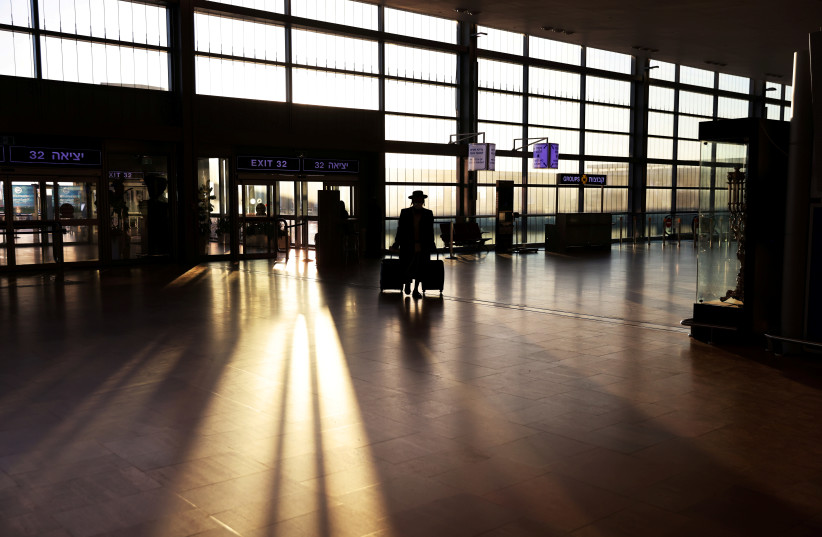After the Histadrut labor federation declared a labor dispute with the Israeli aviation industry on Tuesday, the Finance Ministry said it will provide additional financing to El Al, Israir and Arkia to help them stay afloat.
In a letter sent by the ministry to airline heads, the Treasury said it will issue bonds on behalf of the airlines to raise debt that they will not have to repay for two years. This was conditioned on the owners of the companies also pouring millions of dollars into their airlines as well.
Finance Minister Avigdor Liberman said he is working on reaching agreements with the airline heads in the coming days.
“I’ve met with everyone from the airlines and heard their proposals,” Liberman said in a press briefing Wednesday. “I hope the airlines will see this not just as offering aid, but that they will present efficiency programs for their airlines that reflect the new economic situation.
“I also look forward to seeing what the shareholders are prepared to offer from their own accounts,” he said. “I hope they will do more than just ask the state to give them $250 million.”
The ministry has not yet committed to how much money each airline will receive, but it is believed that El Al, the country’s largest carrier, will need between $100m. and $200m., and that Israir and Arkia will need $10m.-$20m. each. The loan terms will not affect those of the airlines’ prior agreements taken on with their previous bailout agreement earlier this year, like El Al’s commitment to provide flights for aviation security officers for the next 20 years.
The Treasury’s decision will not affect the labor dispute that the Histadrut declared on Tuesday, which could spiral into airport closures if not resolved, the national labor union said.

The Histadrut is concerned that El Al, Israir and Arkia are planning to lay off additional employees, after it already dismissed 1,900 of them earlier this year – a third of its total workforce. It is also concerned that the airlines may extend unpaid leave for some workers, change the terms of workers’ contracts, close certain departments and outsource work abroad in efforts to cut costs, harming local workers.
If the dispute is not resolved within two weeks, the Histadrut can begin imposing sanctions, which would likely include strikes and disrupted flight schedules. That would create even more inconvenience for travelers who are already suffering from oppressive coronavirus regulations.
It is not yet clear how the loans would influence such plans. The state is not expected to condition the new loans on further streamlining measures.
Israel’s airlines have been bleeding money during the pandemic. El Al lost $531m. in 2020 and saw revenues drop more than 70% due to canceled flights. The government already spent nearly NIS 750m. to bail out El Al and Israir from the damage of months of canceled flights and airport closures earlier this year.
Continued closures or cancellations will dig those holes even deeper, putting the country’s aviation industry in danger of collapse, airline heads have warned.
